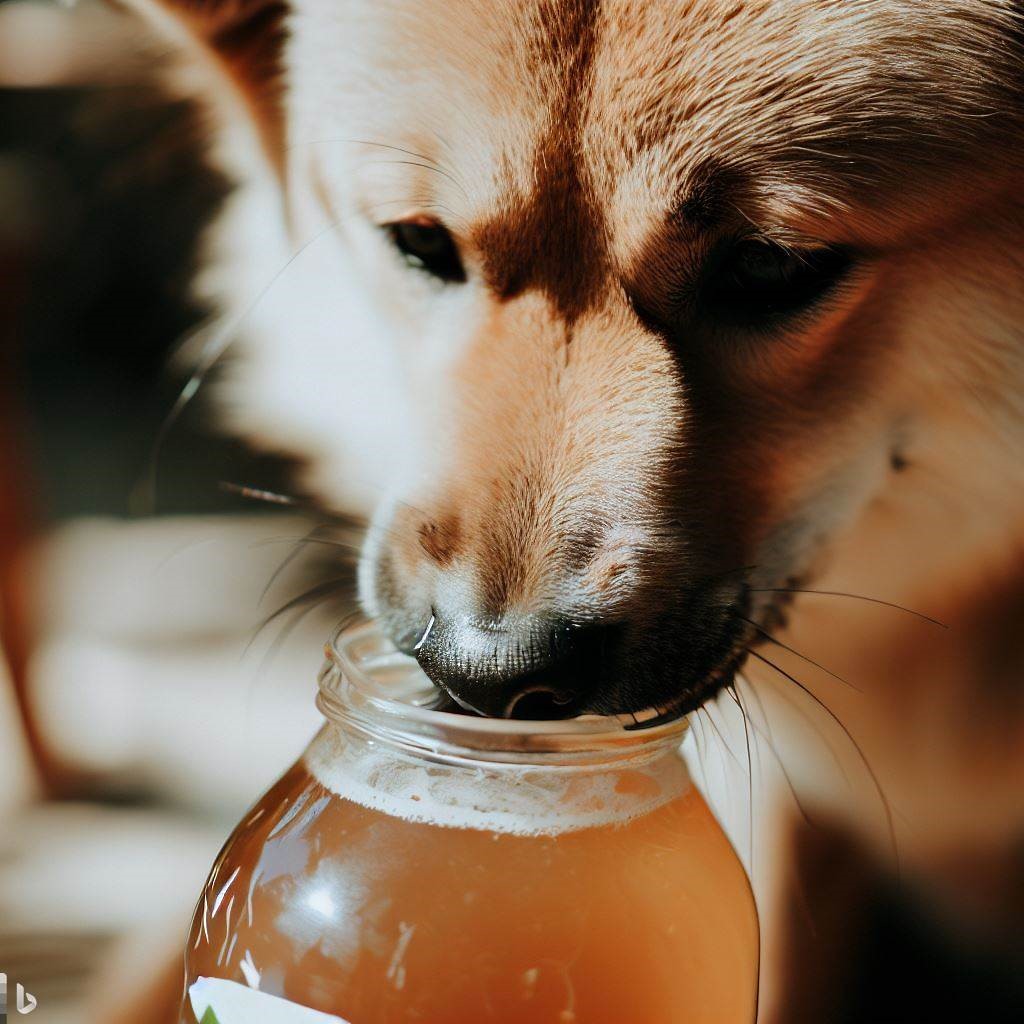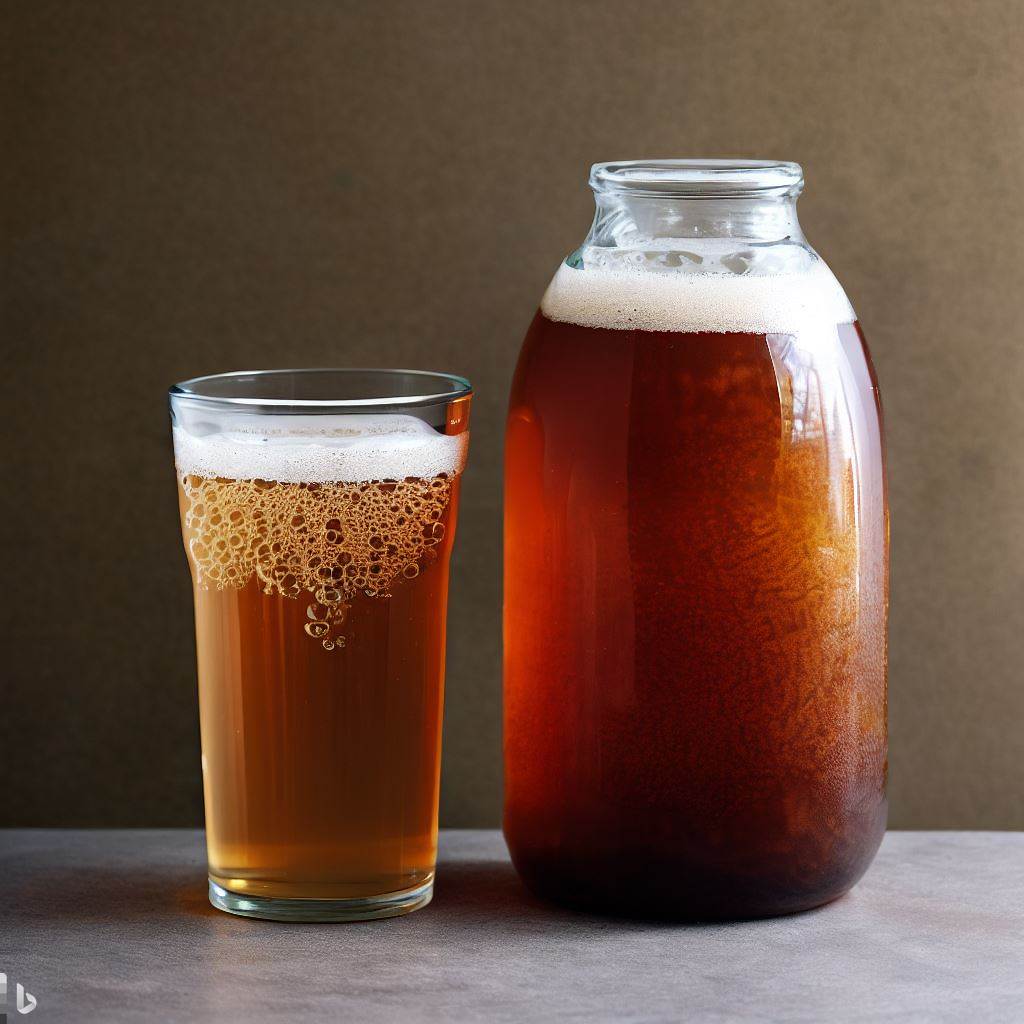Kombucha, the fizzy and tangy fermented tea drink lauded for its health benefits in humans, has been a buzzword in the health community for quite some time now. However, as a pet parent, you might wonder, “Is kombucha safe for my furry friends?” Today, we’ll delve deep into the subject to shed light on the safety and potential implications of kombucha for pets.
Understanding Kombucha
Before we navigate the intricate maze of kombucha and pets, let’s first understand what kombucha is. Kombucha is a fermented tea drink made by adding a symbiotic culture of bacteria and yeast (SCOBY) to a solution of tea and sugar. The result is a beverage rich in probiotics, antioxidants, and organic acids1.
Is Kombucha Safe for Pets? A Comprehensive Exploration
Now, onto the central question — is kombucha safe for pets? The answer, like many things in the realm of pet health, is complex. While some pet owners swear by the beneficial effects of kombucha on their pets, veterinary professionals often urge caution2.
The main concern with kombucha lies in its fermentation process. Fermentation, while responsible for kombucha’s health-boosting properties, also produces a small amount of alcohol. Even a trace amount of alcohol can be toxic to pets, especially smaller animals3. Moreover, the caffeine and sugar present in kombucha might not be suitable for all pets.
Additionally, the acidity of kombucha might upset your pet’s stomach, leading to discomfort and digestive issues. While the probiotics in kombucha can theoretically benefit your pet’s gut health, the potential risks might outweigh these benefits[^4^].
What Does the Research Say?

When it comes to scientific research on the subject, there’s a noticeable gap. Most studies on kombucha have been conducted in relation to human health, with little to no research focusing specifically on its effects on pets. Thus, while we know that kombucha can have numerous benefits for humans, we can’t confidently extrapolate these benefits to our furry friends[^5^].
Veterinary professionals generally recommend that pet owners err on the side of caution. Given the lack of definitive research, it’s best to avoid giving kombucha to pets or, at the very least, consult your vet before introducing it to your pet’s diet2.
Potential Probiotic Benefits of Kombucha for Pets
Now, let’s dive into the heart of the matter: Can these kombucha-derived probiotics benefit our pets?
As you might know, probiotics are live microorganisms that contribute to the health of the gut microbiome. A well-balanced gut microbiome can boost immunity, aid digestion, and even positively impact mood and behavior2.
For pets, a healthy gut is equally vital. Pets with a balanced gut microbiome can better absorb nutrients from their food, have fewer digestive issues, and maintain a robust immune system3.
Given this, it might be tempting to consider kombucha as a probiotic supplement for your pets. However, it’s crucial to remember that while the probiotics in kombucha can potentially benefit your pet’s gut health, there are also inherent risks involved.
The Risks Associated with Kombucha for Pets

Kombucha’s fermentation process, although beneficial for humans, can lead to a small amount of alcohol, which is toxic to pets. Moreover, the caffeine and sugar content in kombucha might not sit well with all pets. Finally, the acidity of kombucha might disrupt your pet’s stomach, leading to discomfort and digestive issues.
While some pet owners report seeing benefits in their pets after feeding them kombucha, given the potential risks, it is recommended to consult a vet before introducing kombucha into your pet’s diet.
Can Pets Consume Kombucha?
While kombucha has been touted for its numerous health benefits in humans, its appropriateness for pets is a topic of debate. Given that the fermentation process of kombucha produces a small amount of alcohol, and that it often contains caffeine and sugar, some veterinarians advise against its consumption by pets2.
However, some pet owners and holistic pet care advocates suggest that pets may safely consume kombucha in small amounts and report seeing benefits. This is why it’s essential to consult with a trusted veterinarian before introducing kombucha to your pet’s diet.
Determining Kombucha Dosage for Pets
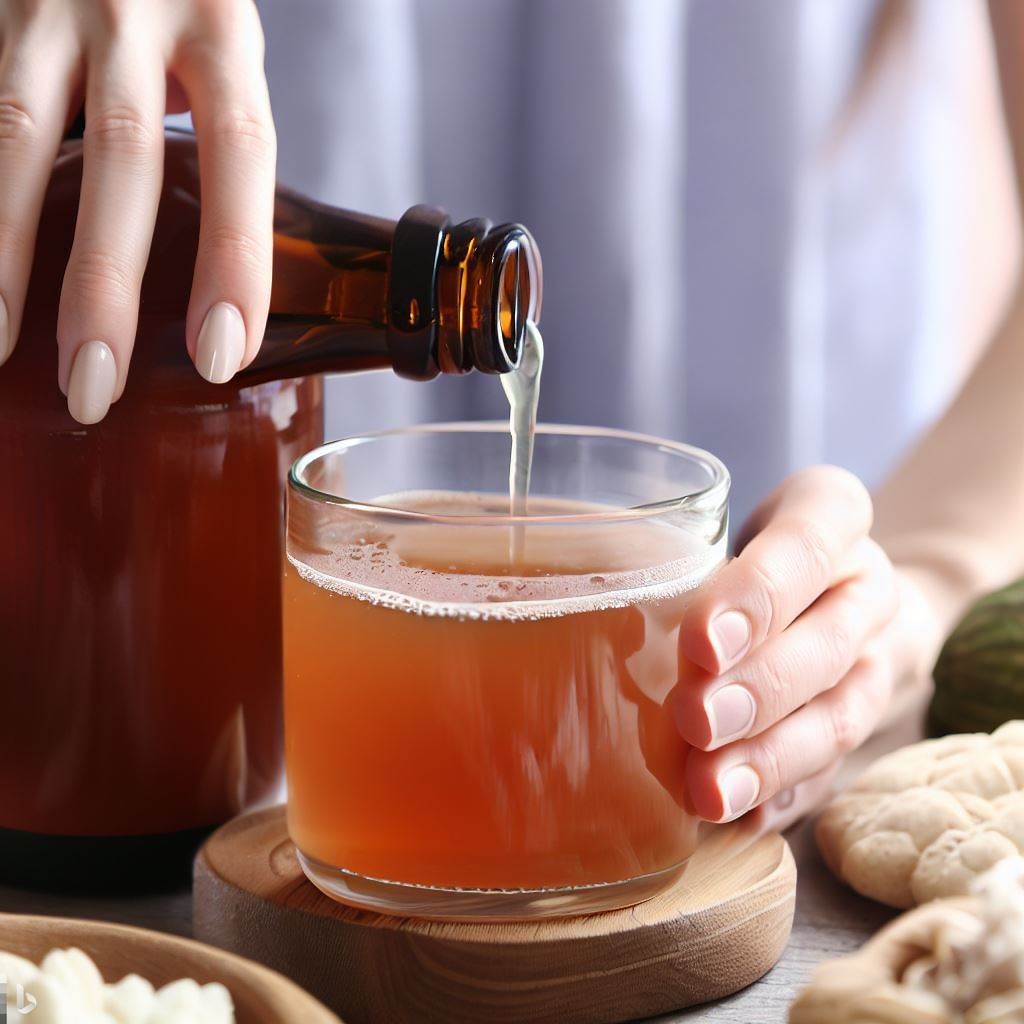
If your vet has given you the green light to introduce kombucha into your pet’s diet, the next question becomes, “What is the right dose?” The answer, as you may expect, is not one-size-fits-all. The appropriate serving size for kombucha can vary based on factors like the pet’s weight, age, and overall health.
As a general guideline, it is always best to start with small amounts. For instance, you might begin by adding just a teaspoon of kombucha to your pet’s food or water. Monitor your pet for any signs of distress or discomfort, such as changes in appetite or bowel movements, and discontinue use if these occur3.
If your pet seems to tolerate this well, you might gradually increase the amount over several weeks, always watching for adverse reactions. As a rule of thumb, a conservative dose might range from a teaspoon for small pets to a tablespoon for larger pets4.
It’s important to remember that these are just general guidelines. Every pet is unique, and what works well for one might not be suitable for another. This is why consulting with your vet is crucial when it comes to your pet’s nutrition and health.
Proceed with Caution
While it’s clear that the potential benefits of kombucha for pets are intriguing, it’s equally important to approach with caution. Always consult with a trusted veterinarian before introducing new items into your pet’s diet, kombucha included.
If you get the go-ahead to give kombucha a try, remember to start slow, observe your pet closely, and always prioritize their comfort and wellbeing. After all, our pets depend on us to make the best decisions for their health, and that’s a responsibility we should not take lightly. Now we’ll look at a couple stories in regard to pet owners and their experiences.

Molly’s Story: A Quest for Digestive Health
Molly, a Labrador Retriever owner from California, decided to give kombucha to her pet based on its reputation for promoting gut health. She believed the probiotics in kombucha would alleviate her Lab’s occasional bouts of digestive upset. Starting with a small amount mixed into her dog’s food, Molly gradually increased the quantity over a few weeks. Although she noticed a slight improvement in her dog’s digestion, she also observed an increased frequency of urination, possibly due to the tea’s natural diuretic properties.
Kevin’s Anecdote: Boosting Immunity
Kevin, a cat owner from Toronto, turned to kombucha in hopes of boosting his senior cat’s immunity. A holistic lifestyle enthusiast, Kevin was impressed by the probiotic content of kombucha and its potential to support a healthy immune system. He began by adding a few drops of kombucha into his cat’s water. Initially, Kevin noticed his cat had more energy and a shinier coat. However, he stopped the experiment when his cat started showing signs of discomfort, including restlessness and reduced appetite.
Jenny’s Journey: A Hunt for a Health Tonic
Jenny, from Texas, owns a small flock of backyard chickens. Intrigued by stories of kombucha improving feather quality and general health, Jenny decided to introduce diluted kombucha into her chickens’ water supply. To her delight, she noticed shinier feathers and more active chickens. However, Jenny emphasized that kombucha was an addition to a balanced diet and plenty of exercise for her chickens.
A Mixture of Outcomes
These stories from pet owners underline the varied reactions pets can have to kombucha, ranging from improved digestion and vitality to signs of discomfort. The anecdotes also underscore the importance of carefully observing your pet’s reactions when introducing any new food or supplement into their diet. Always start with small amounts, closely monitor their response, and consult with your vet for personalized advice. While kombucha might have potential benefits, remember that each pet is unique, and what works for one might not work for another.
Kombucha for Pets: A Vet’s Perspective

When it comes to kombucha for pets, veterinary opinions can vary. Some veterinarians express concern about the potential risks associated with kombucha, while others see potential benefits if administered correctly.
The Risks
Veterinarian Dr. Ann Hohenhaus from the Animal Medical Center in New York points out several factors that could pose risks to pets consuming kombucha. These include the drink’s caffeine content, the small amount of alcohol produced during fermentation, and the acidity of the final product, which can cause digestive upset.
Moreover, Dr. Gary Richter, a holistic veterinarian and pet health expert, warns about the potential for kombucha to become contaminated with harmful bacteria during homemade brewing processes.
The Potential Benefits from a Professional Lens
On the other hand, some vets acknowledge the potential benefits of probiotics found in kombucha for a pet’s digestive health. Dr. Angie Krause, a holistic veterinarian based in Boulder, Colorado, states that she has seen positive effects of probiotics in pets. Probiotics can support the gut microbiome, aiding digestion and supporting a robust immune system4. However, Dr. Krause emphasizes the importance of proper dosing and monitoring for any signs of distress or discomfort in pets given kombucha.
Key Takeaways from Vets
While the discussion around kombucha for pets continues, most veterinarians agree that it’s essential to proceed with caution. Always consult with your vet before introducing kombucha into your pet’s diet. If you receive the go-ahead, start with small quantities, monitor your pet closely, and keep in touch with your vet.
Navigating Alternatives to Kombucha for Pet Health
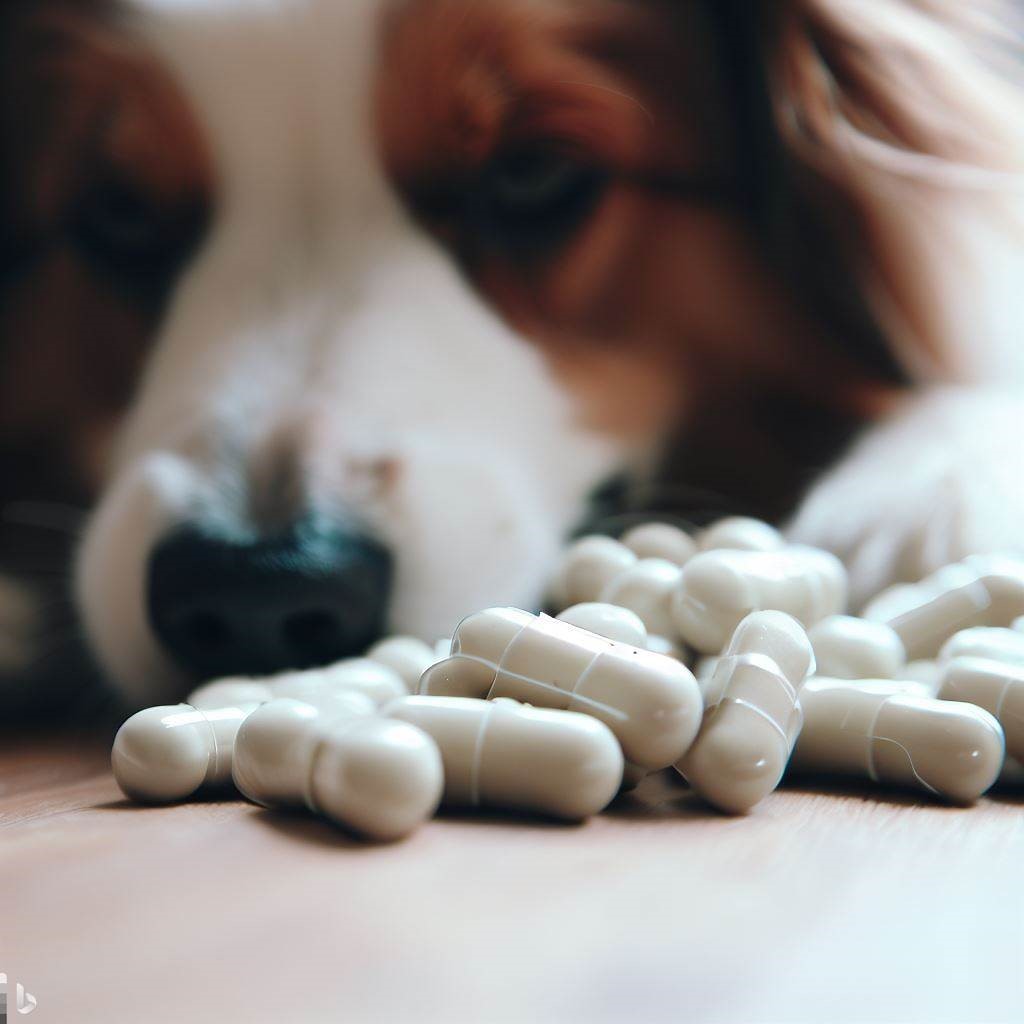
As pet parents, we want what’s best for our beloved companions. The rise of kombucha as a superfood has led many of us to question its potential benefits for our pets. However, veterinarians warn about the potential risks of kombucha for pets, such as its caffeine content, small amounts of alcohol from fermentation, and possible digestive upset. So, if kombucha isn’t the right fit, what are some healthy alternatives that can boost your pet’s wellbeing? Let’s explore some vet-approved options for maintaining your pet’s health.
Probiotics Specifically Formulated for Pets
While kombucha is rich in probiotics, it might not be the safest way to introduce these beneficial bacteria into your pet’s diet. Instead, consider pet-specific probiotic supplements. These products are carefully formulated to cater to the digestive needs of cats and dogs, without the added risks of kombucha’s caffeine and alcohol content1.
Omega-3 Fatty Acids
Omega-3 fatty acids, specifically those found in fish oil, are well-documented for their health benefits in pets. They help support your pet’s skin and coat health, joint function, heart health, and immune system. Unlike kombucha, fish oil supplements are widely recognized as safe for pets, making them a fantastic alternative[^2^].
High-Quality, Balanced Diet
A well-rounded, balanced diet is the cornerstone of your pet’s health. Opt for high-quality pet foods that meet AAFCO (Association of American Feed Control Officials) guidelines. These foods are scientifically balanced to provide all the necessary nutrients your pet needs, eliminating the need for most supplements[^3^].
Regular Exercise
While not a dietary supplement, regular exercise is a potent booster of your pet’s overall health. Physical activity helps maintain a healthy weight, keeps the joints limber, strengthens the cardiovascular system, and even promotes good digestive and mental health. Regular playtimes and walks might provide more health benefits than a questionable dose of kombucha[^4^].
Regular Vet Check-ups
Preventative veterinary care is another irreplaceable aspect of your pet’s health regimen. Regular vet visits help catch any potential health issues early and keep your pet up-to-date on necessary vaccinations and parasite preventatives. Your vet can also provide personalized advice on dietary and lifestyle changes based on your pet’s specific needs.
Final Thoughts
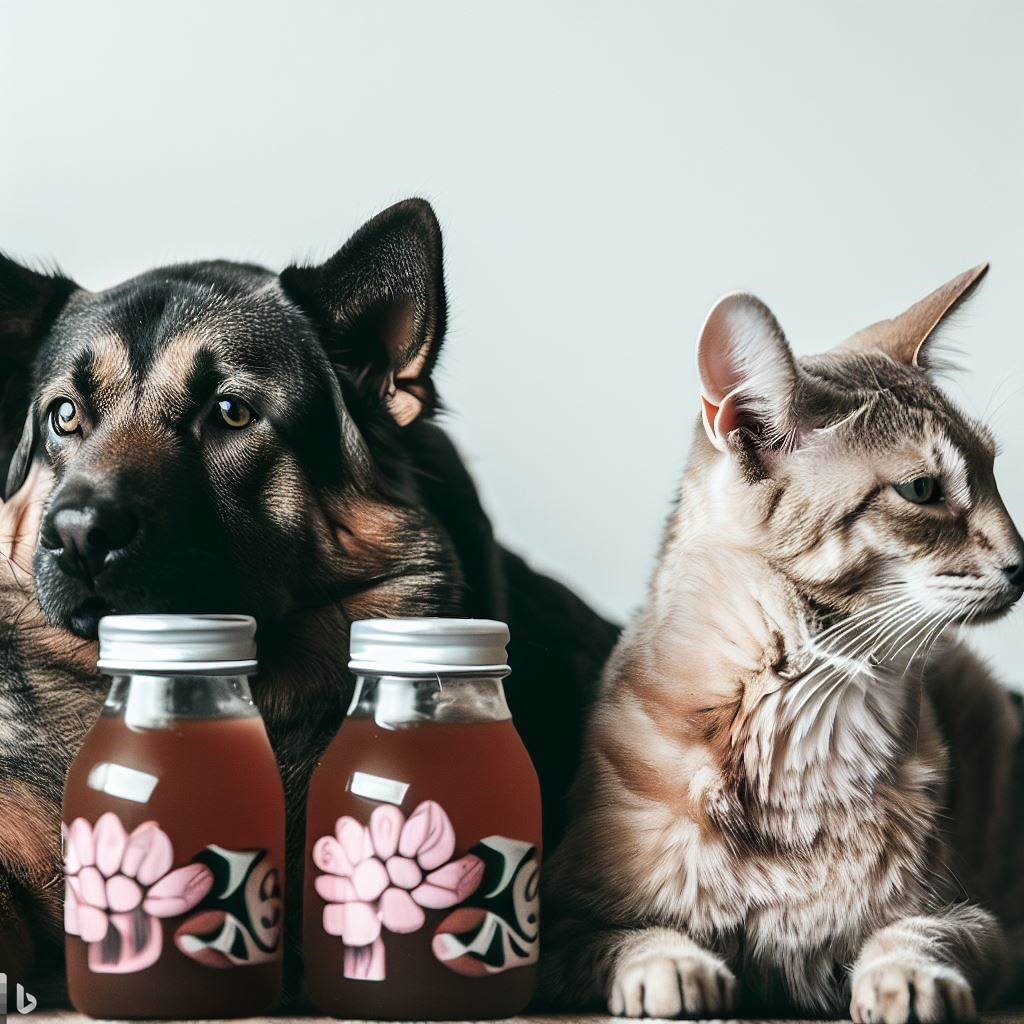
In the grand scheme of pet health, the safety of kombucha for pets remains a grey area. Despite the health benefits it offers to humans, the potential risks it poses to our pets cannot be ignored. Until further research clarifies its safety, it’s best to stick to pet-friendly foods and drinks.
As always, when it comes to your pet’s diet, consulting your vet is the best course of action. Your vet can provide personalized advice based on your pet’s specific needs, ensuring they stay healthy and happy.
Thanks for reading this GMK Article on Kombucha for your Pets. Read more here:

